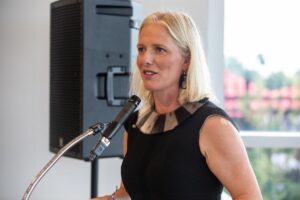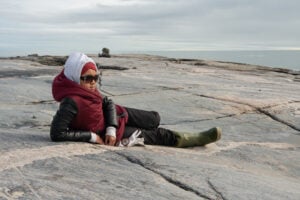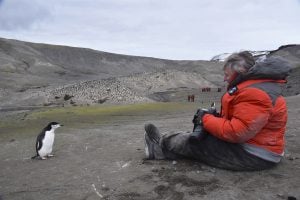
People & Culture
Kahkiihtwaam ee-pee-kiiweehtataahk: Bringing it back home again
The story of how a critically endangered Indigenous language can be saved
- 6310 words
- 26 minutes
This article is over 5 years old and may contain outdated information.
People & Culture

As the first Canadian woman in space and the first astronaut-neurologist, Roberta Bondar has explored the farthest reaches of our planet, been at the cutting edge of science and shattered society’s expectations of women. Her latest foray into the world of photography has taken her to some of the most extreme places on Earth and allowed her to share her unique perspective of Canada.
On what drives her
The first thing is curiosity, the second is having a passion to discover how things work and explain it to other people and the third is having a strategy to succeed. Those are the three main areas that have driven me in the past and have kept driving me. There are things that are more difficult as I get older and have more injuries. I have some physical constraints that I didn’t have before, but I’ve balanced those with some of the leaps that I’ve made emotionally and intellectually.
On advice to young people, and young women in particular, who want to follow her lead
I look at myself as a cheerleader for women and a role model for men. Men need to see women not only as equals, but also as role models. We have to look at how society is balancing the inclusion of everyone. That means we don’t exclude or put down some other facet of our country on the basis of race, gender, or anything just because someone wants to feel superior.
The advice I give to young women is to surround oneself with a support system, comprised of both women and men. Understand also that a support system can evolve over time and that you don’t exist alone. You may have your own passions and desires, but it’s very hard to have a strategy if you don’t interact with others.
On her biggest challenge in her career
Being accepted as a woman on an equal footing with men. It’s a constant. Sometimes when people talk about challenges, they come up with health issues. I’ve had health issues too. But the biggest challenge that I’ve had since I can remember, is not having people give me the same opportunities and the same dignity as men.
On overcoming that challenge
The best revenge is success. When my mother was alive, even when she was sick, she was the strength. I would call her on the phone and she would always tell me to take the high road. But there were a lot of situations where I suffered and I didn’t tell her because I didn’t want her to be stressed.
You always have a choice. If you have a vision and someone doesn’t share it, you either change the person or the vision. You have to change the dynamic. Change the environment, change the people that share it, get it into a place when you can be satisfied and fulfilled. I hate when people talking about reaching a potential. I feel like potential should be something you never reach, unless you’re maybe five seconds from death.
On transitioning from astronaut to photographer
When I left the space program, I thought what am I going to do now? I have a passion for my country, I love the space program and I wanted to photograph the Earth from space and explore my own country. So I mortgaged my house in 1998 and became an entrepreneur. Then in 2009, I founded the Roberta Bondar Foundation with the president of Trent University, where I was chancellor for 6 years. This allowed me to use all of this wonderful iconic photography of Canada I had in an educational way. I felt that if people love their country, they’ll want to protect it and start digging into their own issues. I changed how I approached my passion and my curiosity by moving from the space program to being an explorer on the surface of the planet and sharing that passion with people.
Are you passionate about Canadian geography?
You can support Canadian Geographic in 3 ways:

People & Culture
The story of how a critically endangered Indigenous language can be saved

People & Culture
A century after the first woman was elected to the Canadian Parliament, one of the most prominent figures in present-day politics shares her thoughts on how to amplify diverse voices in the Commons

People & Culture
For generations, hunting, and the deep connection to the land it creates, has been a mainstay of Inuit culture. As the coastline changes rapidly—reshaping the marine landscape and jeopardizing the hunt—Inuit youth are charting ways to preserve the hunt, and their identity.

Science & Tech
As a biologist and photographer, I had long hoped to visit Antarctica — but this journey was much more than a travel dream fulfilled